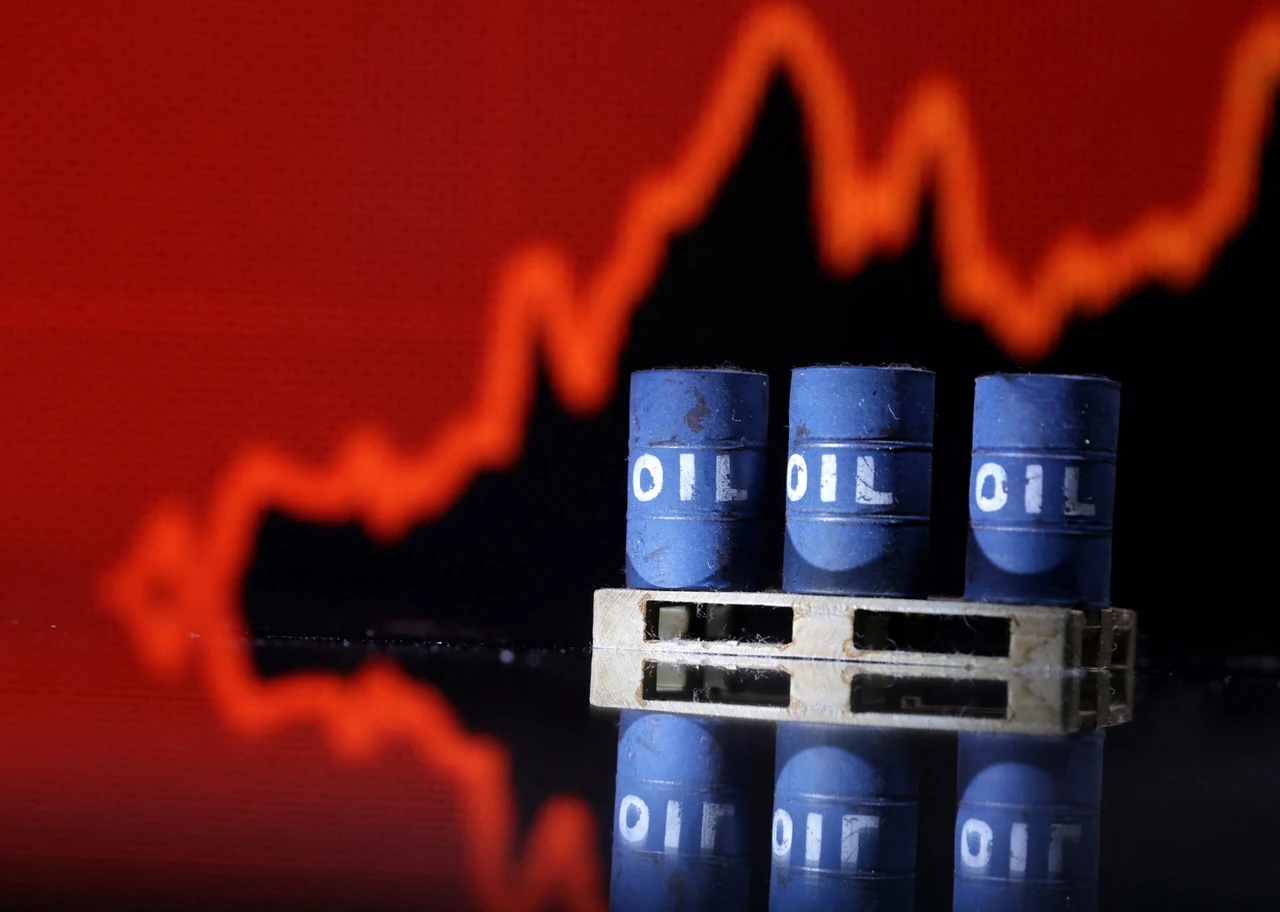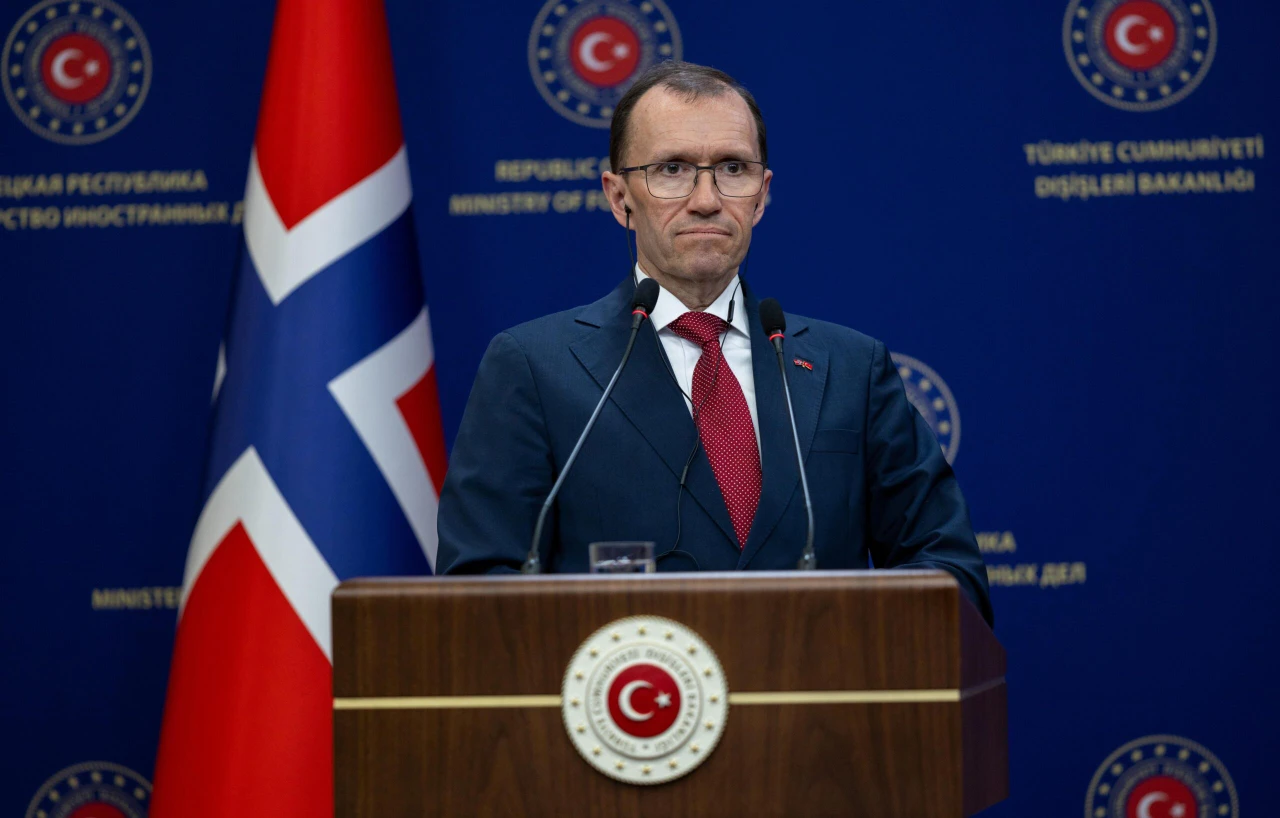Oil prices soar amid fears of Israeli strikes on Iranian oil
 Oil barrels are modeled in front of a rising stock chart in this illustration dated July 24, 2022. (Reuters Photo)
Oil barrels are modeled in front of a rising stock chart in this illustration dated July 24, 2022. (Reuters Photo)
Oil prices continued to rise on Friday as fears grew that Israel could target Iranian oil facilities in retaliation for Iran’s recent missile attack.
Oil prices are set for a 9% weekly gain, driven by investor fears of a broader Middle East conflict disrupting crude supplies.
This surge follows U.S. President Joe Biden’s statement that the U.S. is discussing potential Israeli strikes on Iranian oil facilities. As of 1323 GMT, Brent crude futures rose by 66 cents (0.85%) to $78.28 per barrel, while U.S. West Texas Intermediate crude futures increased by 63 cents (0.85%) to $74.34 per barrel.
Geopolitical risk premiums have pushed oil markets higher as tensions in the Middle East intensify.
Iran has warned of further escalation if Israel retaliates for Tuesday’s attack, which Iran claims was in response to Israel’s killing of Hezbollah Secretary-General Hassan Nasrallah, former Hamas political leader Ismail Haniyeh, and Islamic Revolutionary Guards Corps commander Abbas Nilforoshan.
Israeli airstrikes continue on Lebanon
Meanwhile, Israeli airstrikes on Lebanon persist amid ongoing border clashes between Israeli forces and Hezbollah.
The Israeli army announced “limited, localized” ground raids in southern Lebanon and has ordered residents of 25 towns in southern Lebanon to evacuate north of the Litani River.
In a related development, Yemen’s Houthi group released a video on Thursday evening showing a British oil tanker being targeted in the Red Sea, west of Yemen.
A thick black cloud of smoke was visible, marking the latest in a series of attacks by the Houthis on vessels linked to Israel in solidarity with Gaza, which has been under continuous Israeli bombardment since October 7 last year.
Despite these developments, signs of ample global oil supply have tempered further price hikes. Libya resumed oil production after a political standoff over its central bank was resolved.
The Libyan House of Representatives had previously declared a force majeure, halting oil production and exports. However, an agreement brokered by the U.N. Support Mission in Libya (UNSMIL) led to the appointment of a new president and deputy president for the central bank, easing tensions.



